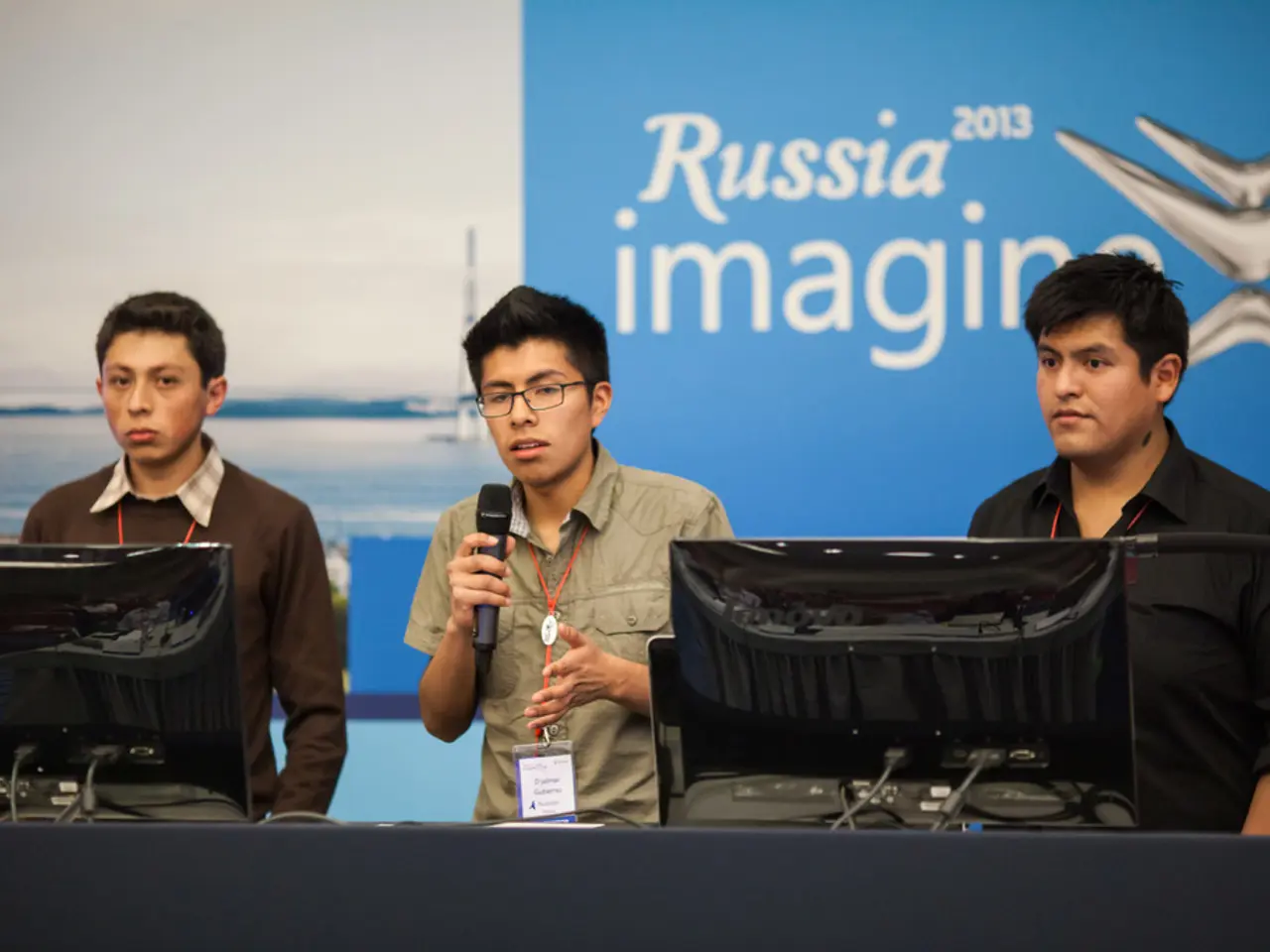Highlights AI-related cyber threats, advocates for collaborative efforts between Korea and the U.S.
In a significant move to address the growing threat of cybersecurity, the American Chamber of Commerce in Korea (AmCham) held its first Cybersecurity Seminar on Wednesday in Seoul. The event, themed **"Cybersecurity as National Security: Global Trends & Industry Lessons,"** brought together senior Korean and U.S. government officials, global business leaders, and cybersecurity experts to discuss the evolving nature of cyber threats in the AI era and their impact on national security[1][2][3].
The seminar underscored the growing importance of cybersecurity in national and economic security. AmCham Chairman and CEO, James Kim, emphasized that cybersecurity must be recognized as a cornerstone of national and economic security, moving beyond being seen solely as a corporate issue[1][2]. This sentiment was echoed by Simon Green, the APAC President at Palo Alto Networks, who urged organizations to adopt integrated, AI-ready cybersecurity strategies[1].
One of the key discussions revolved around cybersecurity as a critical pillar of national resilience. The recent SK Telecom breach demonstrated that even well-managed organizations are vulnerable, signaling widespread risks that could affect public trust and critical infrastructure[1][2]. Green further stressed how advancements in AI have transformed cyberattack methods, necessitating organizations to secure AI systems by design to enable innovation with robust security foundations[1].
The seminar also emphasized the urgency of cooperation across sectors and borders. Korean lawmakers, Ministry officials, and U.S. security representatives underscored the growing risk to national infrastructure and public safety, demanding close collaboration between government agencies and private industry, especially between Korea and the U.S.[1][4][5]. A panel moderated by Professor Kwon Hun-yeong discussed evolving cyber risks in critical sectors such as telecom, finance, and energy, advocating for cross-border data sharing and holding executives accountable to strengthen defenses and response capabilities[1].
The event also reaffirmed AmCham’s role in fostering technological partnerships to create a secure digital business environment, vital as cyber threats rise globally and politically sensitive landscapes evolve[1][4][5]. The panel called for securing AI systems by design to enable innovation with robust security foundations and for promoting Korea-U.S. tech cooperation to effectively counter emerging digital threats[1][2][4].
In summary, the seminar highlighted that cybersecurity is no longer confined to corporate walls but is a fundamental aspect of national security, necessitating AI-driven strategy adaptation, multi-sector cooperation, and global partnerships—particularly between Korea and the United States—to effectively counter emerging digital threats[1][2][4]. The seminar served as a call to action for organizations and governments to work together to ensure a secure digital future.
[1] Source: AmCham Korea Press Release, July 16, 2025. [2] Source: Palo Alto Networks Blog Post, July 16, 2025. [3] Source: The Korea Herald, July 17, 2025. [4] Source: The Chosun Ilbo, July 17, 2025. [5] Source: The Korea Times, July 17, 2025.
In the context of the evolving AI era, the importance of education and self-development in cybersecurity becomes increasingly prominent, as organizations need to adopt integrated, AI-ready strategies to safeguard their systems effectively. The seminar, organized by AmCham, emphasized the necessity of a global approach, advocating for close cooperation between governments and the private sector, particularly between Korea and the U.S., in order to address emerging cyber threats and ensure a secure digital future.




